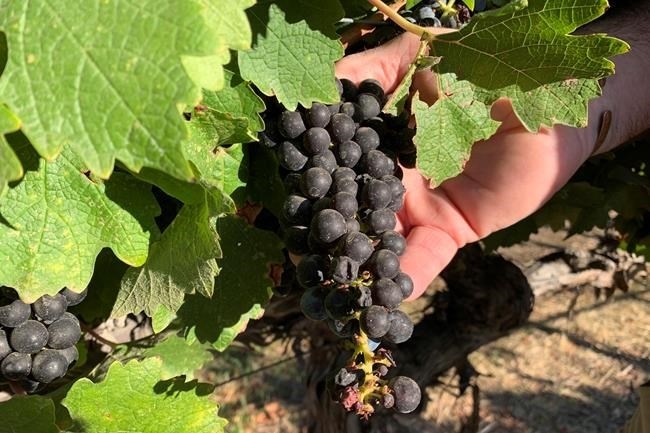Strategy to protect wine grapes from smoke-taint developed by UBC Okanagan researchers

A common agricultural spray may be the key to preventing smoky flavour permeating wine grapes.
A recent study by a team of UBC Okanagan researchers led to the development of a preventative strategy for protecting grapes from volatile phenols — flavoured compounds present in smoke that may be absorbed into ripening grapes and subsequently impact wine flavour.
“It’s definitely one of, if not the biggest concern wine-making communities are facing today,” Wesley Zandberg, assistant professor in chemistry at UBC Okanagan and study author said, in a press release.
“When you look at the catastrophic wildfire seasons California and the Okanagan Valley have experienced in recent years, and the season Australia is experiencing now, I don’t think a solution can come quickly enough. Winemakers are under a lot of pressure to find a way to protect their crops.”
“Many grape-growers don’t have the means to pay to test their crops, so since smoke-taint can’t be reliably detected until grapes are fermented, producers have to wait weeks to know whether their plants are suitable or not,” Zandberg said.
“Meanwhile, costs and risks mount as their crops sit on the vine.”
In 2003, the wildfires in Australia cost their wine industry $300 million dollars in lost revenue, and they will likely have a similar experience this year.
The study was published recently in the Journal of Agricultural and Food Chemistry.
To contact a reporter for this story, email Kathy Michaels or call 250-718-0428 or email the editor. You can also submit photos, videos or news tips to the newsroom and be entered to win a monthly prize draw.
We welcome your comments and opinions on our stories but play nice. We won't censor or delete comments unless they contain off-topic statements or links, unnecessary vulgarity, false facts, spam or obviously fake profiles. If you have any concerns about what you see in comments, email the editor in the link above.


